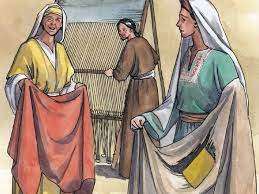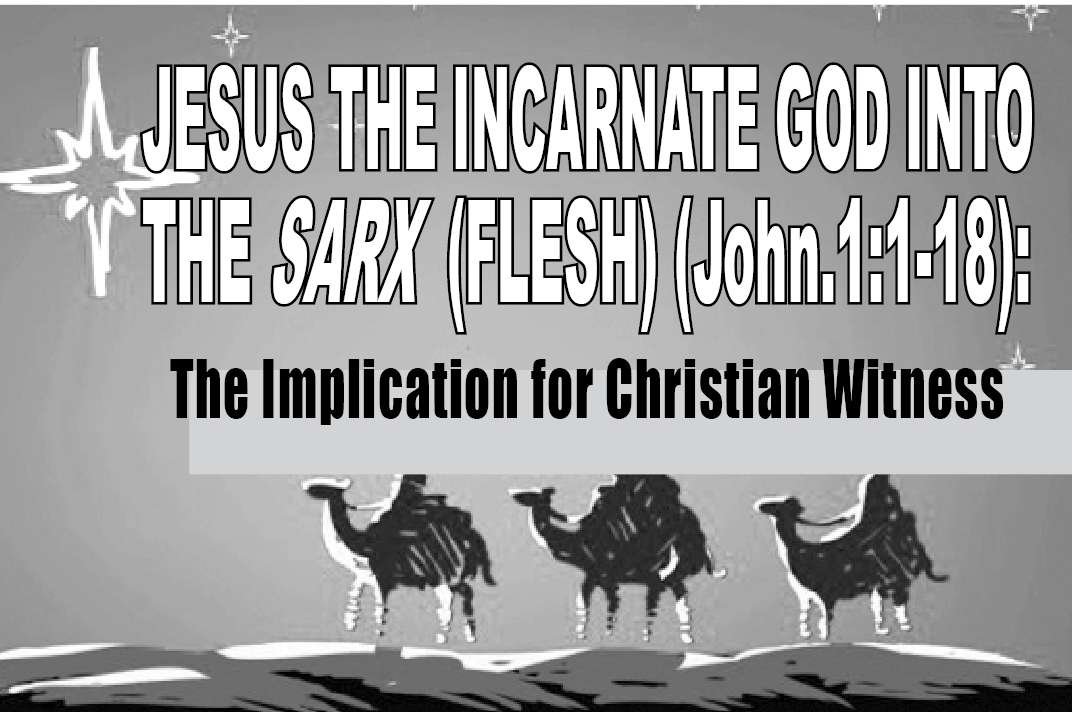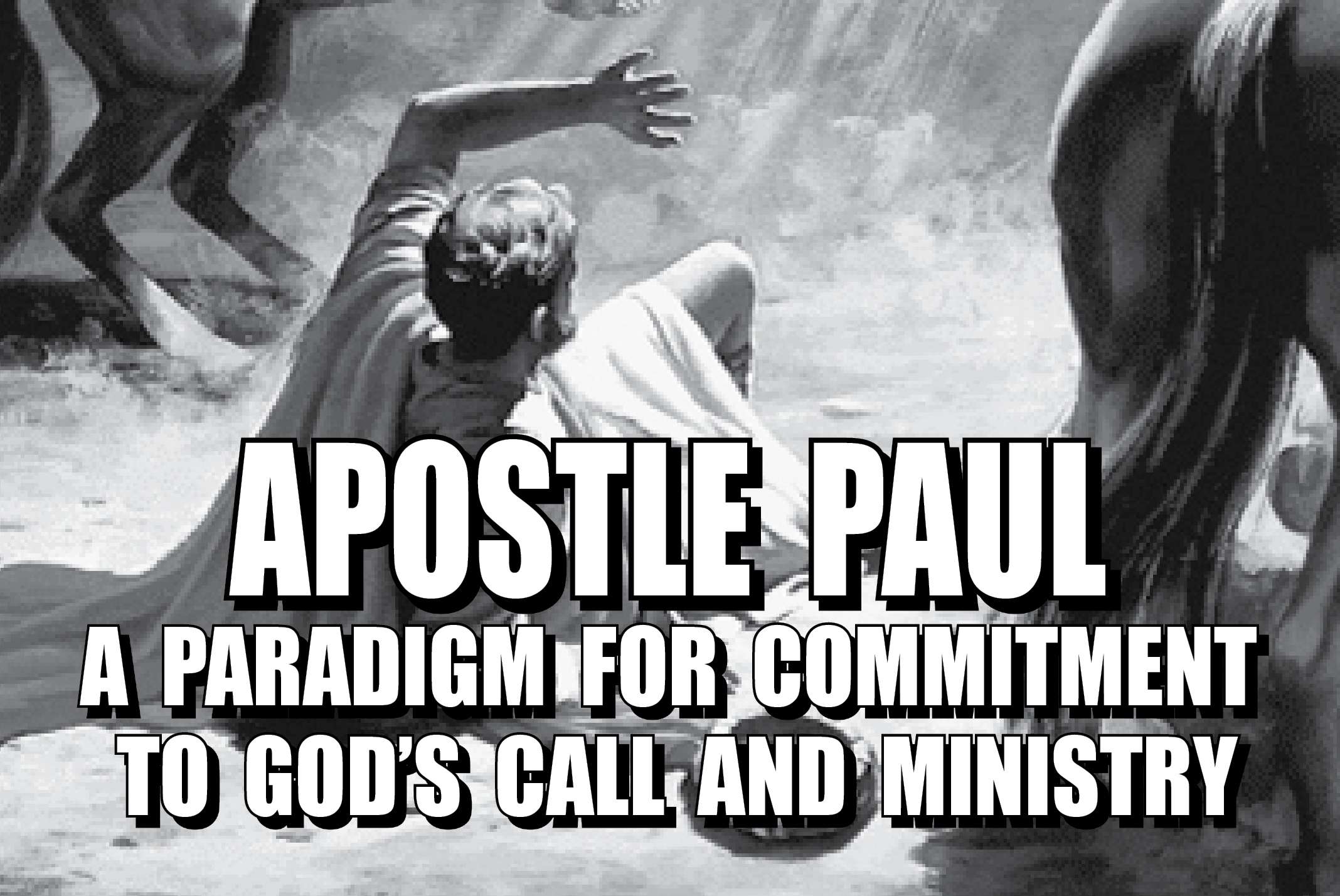

Discipleship in Christian Ministry
Dr. Jose L.
Christian life is described as a pilgrimage or a journey or ‘the way’ to the cross. This “journey motive” is emphasized by the gospel writers as they narrate Jesus’ journey, along with his disciples, towards Jerusalem to die on the cross (Mark.8:27-10:52; Luke. 9:51-18:14). On the way, Jesus teaches his disciples about discipleship. Paul also uses the journey motif and teaches this journey as ‘walking towards eternity’ in the path of discipleship (Gal.5:6; Rom 6:4; 13:13; 14:15; Phil.3:17; 1Thes.2:12). Discipleship, therefore, is an important theme in the New Testament and it is an indispensable element in Christian ministry.
In Christian discipleship, there is a strong bond between the disciple and Jesus, which in turn characterizes the relationship between every disciple and the community of believers. Such a relationship begins with a call from God for a radical change of life, inwardly and outwardly, by depending on Him. This call to discipleship is a call for one’s total commitment to the task of the Kingdom.
Discipleship, thus, is a comprehensive term for service or ministry. However, it lost its meaning over the years due to many “so-called disciples” seeking after position and power instead of service or ministry. Being greatly influenced by the socio-political context, where leaders are seeking after greatness rather than service, the servanthood attitude in Christian ministry is traded for positions and power. In the ecclesiastical context too, ministry has turned to become a bossy, bureaucratic and exploitative enterprise.
In our pluralistic Indian context, the uniqueness of Christian ministry is based on servanthood and service to humanity. It is in partnership with God in the service to the whole creation. The Christian minister’s relationship to his/her master and the life oriented towards a servanthood ministry is an important dimension in ministry. The term Diakonia, which is used for ministry/service is closely connected with the term dulos. Diakonia means ‘to wait on tables’ and dulos means a slave. No wonder, Paul always introduces himself as a dulos of Christ in his letters. This essay is an attempt to bring out the intricate connection between discipleship and Christian ministry.
A Call for Discipleship: To become like the Master
During the earthly ministry of Jesus, a large crowd followed him for various reasons. Among them, He personally called twelve disciples from various walks of life to be his disciples. He called and commissioned them with authority (Mk.1:16-20; 3:13-19). They were taught the secrets of the Kingdom of God (Mk.4:10-12). All four gospels narrate how Jesus seriously taught his disciples the lessons of discipleship and commissioned them to make others disciples (Mt.28:16-20). The purpose of discipleship is to become like their master. Matthew the evangelist separates teaching segments (5-7; 10; 13; 18; 23-25) to explain the way how Jesus taught his disciples so that they would become like their master (Mt.4:48).
In the Synoptics, the relationship between Jesus and the disciples is expressed by the term ‘follow.’ Here the discipleship is based on four concepts: call of Jesus, denying one’s self, cross bearing and following daily. Following Jesus is synonymous with discipleship, a total allegiance/ undivided loyalty to Jesus our master. It is also a relationship that brings grace and power to walk with Christ our Lord. Moreover, this relationship helps us to obey the commandments of Jesus to love God and love our neighbours (Mt.23:37-40). It is following Jesus in loving God with our heart, soul, mind and strength.
In discipleship, the initiative comes from our master in giving a vocation to whom he chooses. It is in response to this vocation that a disciple opens his/her heart and mind to follow Jesus’ teaching in faithful obedience. It is total obedience to God’s will. The disciples would reflect their master in their daily walk with Jesus. Following Jesus must deter anyone to have allegiance to wealth (Lk.12:13-21; 16:10-13, 14-16, 19-21), and one’s own life (Lk.14:26).
Teaching about Discipleship: Being in the School of the Master
The Gospel of Mark gives much emphasis to discipleship. In the first part of the gospel (Mk.1:16-8:26), the evangelist vividly portrays the calling, appointing and sending of the disciples for preaching God’s kingdom and healing (Mk.1:16-20; 3:13-19; 6:7-13). In the central section of the gospel (Mk.8:27-10:52), Jesus teaches his disciples about discipleship. There are different categories of disciples. A close circle of disciples who are called to be “with him” (Mk.3:13-14) and a larger ‘crowd’ who were “followers” (Mk.3:20; 3:31-35). Failure on the part of the disciples is portrayed by Mark in this section (Mk.8:27-10:52) and Jesus taught his disciples that only in the light of the cross the disciples will be able to understand discipleship. When a disciple is in the school of the master, he/she will truly estimate discipleship in the light of the cross and not in the light of the miracles and mighty acts.
During the course of time, it is reported that the disciples were not able to comprehend the teachings of Jesus because their hearts were hardened (Mk.6:52; 8:21; 9:10,32; cf.Mt.13:2-3; 10-17; 34-36;) and their lack of faith (Mt.14:31; 16:8, 22-23; 17:20). In the discipleship making process the disciples were imperfect. However, in the course of discipleship Jesus taught them (Mk.4:10-12), corrected them (Lk.22:31-34), comforted them (Jn.20:19-22) and restored them (Jn.21:15-19).
The Cost of Discipleship: Self-denial and Taking up the cross (Mk.8:31-33; 9:30-32; Mt.16:24).
Christ’s ministry was one of suffering on the path of the cross. So the disciples are exhorted to follow the same path of suffering. Jesus told the disciples categorically that there is a cost in following him (Mt.8: 18-22; Lk.14:25-33). The disciples are supposed to deny themselves and take up the cross and follow Jesus on a daily basis (Lk.9:23). In Mk.8:31-33, Jesus began to teach his disciples that ‘the Son of Man will be betrayed (rejected) and killed and after three days rise again.’ This is a bold declaration of Jesus’ suffering.
It is the denial of self itself, not to affirm any right to life when faced by the persecution. Denial of self means complete submission to the Lordship of Christ that self has no right or authority at all. It is the inner attitude towards the expression of an outward activity of cross-bearing. Self-love is one of the greatest hindrances to discipleship.
Discipleship is Servanthood
The centre part of the gospel of Mark is Mk.8:27-10:45 and it explains the true meaning of discipleship as servanthood. “Their failure to recognize his death (Mk.8:31-33; 9:31-32; 10:33) leads to Jesus’ teaching about the cost of discipleship and the way of the cross (Mk.8:34-38), about status and kingdom conduct (9:33-10:31), and about the inverse nature of greatness illustrated ultimately by Jesus coming to serve as the Son of man (10:34-35)”. 1
This central section is called the way section. It is the narration of a journey from the village of Caesarea Philippi to Jerusalem. On the way, Jesus repeatedly predicts his death (Mk.8:31-32; 9:30-32; 10:32-34) and explains the significance of his identity. On the way to Jerusalem, Jesus teaches about discipleship and instructs on the necessity of suffering (Mk.8:34-38; 9:33-37; 10:35-45). In this section, the rich man rejected the master’s call and Bartimaeus who was a beggar followed Jesus on the way (Mk.10:46, 52). This section begins with the confession of Peter as the Christ and thus it continues to teach the true understanding of discipleship.
The vividness of the imagery of a condemned criminal carrying the cross to the place of execution is very well placed in the mind of the readers. The disciples failed to understand this. Jesus used the failures of the disciples to instruct them about discipleship. He taught them that the essence of discipleship is servanthood. The way of true discipleship, in the words of Jesus’ instruction, is the way of suffering and the way of the cross. Jesus calls for daily self-denial (Lk.9:23). Jesus is the best model to follow in the path of discipleship. He taught his disciples the ministry of servanthood by motivating them to take up the position and ambition and expectation of a servant.
It is in this line we need to understand the question of James and John seeking for chief position of honour when Jesus enters his glory (Mk.10:35-39). Greatness was a topic of contention among them. The other disciples became angry with James and John because they were also in the pursuit of greatness through power. Jesus spoke a series of sayings about authority and instructs them that the true discipleship leads to rejection of power and status in the new community (Mk.10:42-44). Only those willing to be slaves in the service of others have any claim to greatness. The final sayings of Jesus points once again to the Son of Man as the one who has come to serve.
In Mk.10:43, Jesus emphatically mentions ‘but whoever wishes to become great among you must be your servant (diakonos) and whoever wishes to be first among you must be slave (dulos) of all.’ Jesus’ disciples expected that he would come and sit on the throne of David and rule the nation of Israel. The disciples were expecting status, power and glory just like the socio-political leaders of the time. The disciples misunderstood the messianic mission to suffer and die. Jesus made use of this occasion to teach the disciples the true meaning of ministry as servants to one another and a ‘slave of all.’ The attitude of humility taught by Jesus must be understood in the context of pride, honour and fame sought by the disciples in the socio-political context of Palestine /Rome (Mk.9:35; Mt.20:26).
It is a voluntary self-denial and self-sacrifice and service to humanity even to the extent of giving one’s life for others. Jesus further explains the next dimension of service to become a slave in order to give his life as a ransom for all (Mk.10:45). “Like a slave who loses his identity, freedom and status to the service of his master, Jesus wanted his disciples to serve others. It is to the task and faithful allegiance of the slave to the authority of the master.” 2Paul addressed himself as servants and slaves as ministers in the local churches (1Tim.1:12; 3:8, 12; 4:6; 2Tim.4:5).
Discipleship is Service to Christ and Humanity (Mark 10:35-45)
“James and John wish to follow Jesus to his kingdom but have not understood that the way to it is the way of the cross.” The disciples were expecting a glorious king seated on a glorious throne ruling with a golden sceptre. They could never imagine about a suffering messiah, a servant king. They did not understand that in Jesus’ kingdom the way to glory is sacrifice, service and suffering. Jesus told them that they should not be like the Gentile rulers who lord it over others. Discipleship could be interpreted in the light of the cross. James and John measured greatness as something they would attain in their life itself. The disciple is also to serve or to wait at the table (diakoneo) (Lk.17:8; Jn.12:2), as servants of people.
Discipleship as Taking the yoke upon and Learning from Jesus (Mt.11:25-30).
Jesus gives the invitation to all who are weary and burdened that they may come to him and learn from him. It must be a burden on the people by the political as well as the religious leaders of the time, a burden of Roman imperial yoke and the Pharisaic religious yoke which is imposed upon the ordinary masses by the leaders of the time. The call is to take the yoke of discipleship upon oneself and learn from him. In this learning process of discipleship the learner and the master walks together. The yoke the disciple is to carry is the teachings of Jesus, which is the will of God. It is a yoke of communion, yoke of submission, yoke of service, yoke of discipline, yoke of rest and reward. Learning from the master is an important Matthean concept of discipleship (Mt.9:13; 28:19). The yoke of Discipleship is easy when we put our neck under it with complete surrender. Jesus asked us to learn from him day by day so that we may grow into the knowledge and character of Jesus.
Discipleship as a Progressive, Dynamic and Growing Relationship with Jesus
According to John, discipleship is a progressive, dynamic and growing relationship with Jesus and with one another. For him, discipleship is to serve ‘diakoneo’, to wait at the table (Jn.12:12; Lk.17:8). Moreover, it is even offering the life, which is the essence of service. Taking up the cross means denying the self-life and allowing Jesus to live in us for the service of humanity (Jn.10:16-22). In discipleship, a true disciple will obey the commandments. A true disciple must hold to the teaching (Jn.8:31) and bear fruit (Jn.15:1-8).
Following Jesus and loving one another lead to serving one another which is narrated in John by washing the disciple’s feet (Jn.13:1-17). Love of Christ must also be reflected in action in giving food to the hungry, clothes to the naked and care for those who are sick (Mt.25:35-36; James.1: 27).
The Relationship between Discipleship and Ministry in the Present Day Indian Context
The theme discipleship is very relevant and it must be taught in a context of the first century imperial religio-political super powers of Jerusalem and Rome. At the same time, the Church also experienced political and religious persecutions where they have undergone severe trials. Christian ministry in India is facing the rapid change of socio-political-religious power structures on one side and persecution against the minorities on the other side. Forgetting the biblical meaning of discipleship, Christian ministry and their intricate connection, Christian leaders have become like executives of industries and companies and lording it over the ordinary masses. The present ministry become ineffective because it is “too often lost its strategy as one of survival rather than sacrifice, of success rather service, of reputation rather than responsibility.” 3Servanthood is the key to one’s greatness. The disciples must follow the attitude of servanthood in contrast to the worldly expectations of the imperial attitude of lording it over others.
Most of the Christian leaders and common Christians are preoccupied with greatness rather than service. This is because the ministers visualise a kingly figure on the throne rather than seeing their master who washed the feet of his own disciples. Jesus taught about a servant king leadership style and we are his servants and slaves who carry his will on the earth. In today’s context, it seems that we demand honour from others rather than serving one another. Jesus not only lived a life of unselfish service but finally gave himself as a supreme sacrifice for all. Effective Christian ministry is possible only by loving God and loving our fellow beings. Every Christian must grow in discipleship and make others disciples by following the footsteps of our master (Mt.28:16-20).








